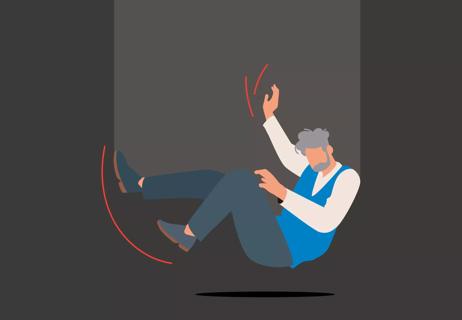Exploring mal de debarquement

After you return home from a cruise, it’s normal to feel like you’re still at sea for a short time. You may lay down to sleep or stand in the shower and feel like the floor is moving and your body is swaying, rocking and bobbing. Within a day or so, your land legs likely will return and the symptoms will disappear.
Advertisement
Cleveland Clinic is a non-profit academic medical center. Advertising on our site helps support our mission. We do not endorse non-Cleveland Clinic products or services. Policy
However, for a rare few returning vacationers, this persistent sensation of motion or dizziness can continue for weeks or even longer. The disorder is called mal de debarquement syndrome.
“It is a phenomenon that isn’t fully understood,” says audiologist Julie Honaker, PhD CCC-A, Director of Cleveland Clinic’s Vestibular and Balance Disorders Laboratories. “We think it may have to do with the brain rather than the inner ears.”
Those with a history of migraine headaches are more susceptible. But, beyond that, not much is known about other risk factors, Dr. Honaker says.
There is some speculation that hormonal changes in middle-aged women and anxiety might play a role, but there is no clear evidence. “It may be related to how we are wired,” she says.
Mal de debarquement syndrome is quite uncommon, but its effects can reach beyond those returning from cruise ships.
Those who take long trips in airplanes, trains and cars may also notice the persistent sensation of motion afterwards. Doctors have even seen the condition in some people after an active day at an amusement park or a night sleeping on a waterbed.
You should feel back to normal a few days after your cruise. If not, talk to your doctor, Dr. Honaker says.
Advertisement
Your doctor likely will review your medical history, look for other symptoms and make sure there’s no other illness causing your discomfort.
Depending on results of the evaluation, your doctor may refer you to an audiologist; an ear, nose and throat specialist; or a neurologist.
If your diagnosis is mal de debarquement, your doctor will likely send you to a physical therapist who specializes in vestibular rehabilitation. This is an exercise-based program that can help improve balance and reduce dizziness-related problems.
“This is the best course of management — using a series of repetitive motions to recalibrate your body,” Dr. Honaker says.
Your doctor also may prescribe medication, such as anti-anxiety drugs, for a short time. Drugs that treat motion sickness are not effective for treating mal de debarquement, she says.
After a few months of therapy, most people feel better and the persistent motion sensation no longer bothers them. However, another cruise — or whatever activity triggered mal de debarquement — can bring on another episode.
“Sometimes the best advice is to avoid that activity,” Dr. Honaker says.
But if you are considering a cruise, don’t let this rare disorder hold you back.
“While it is very common for individuals after a cruise to have a perception they are in motion for 24 hours or so, it is very uncommon for it to prolong,” she says.
Advertisement

Sign up for our Health Essentials emails for expert guidance on nutrition, fitness, sleep, skin care and more.
Learn more about our editorial process.
Advertisement

Building lower body strength is key to staying upright, particularly as you age

A study found that you might live longer if you can stand on one leg — but it’s far from a perfect indication of longevity

Staying active and doing what you love may increase both your confidence and your balance

Is it clumsiness or something more serious?

Wait a few hours, then start with water or ice chips, graduating to clear liquids and then, soft, bland foods

This spinning sensation is a symptom, not a condition, so you need to know what’s causing it before you can treat it

Making a health plan with your doctor before you leave will make it easier to sit back and enjoy your flight

Seek emergency care for vomit that’s red, black, brown or resembles coffee grounds

Even small moments of time outdoors can help reduce stress, boost mood and restore a sense of calm

A correct prescription helps your eyes see clearly — but as natural changes occur, you may need stronger or different eyeglasses

Both are medical emergencies, but they are very distinct events with different causes